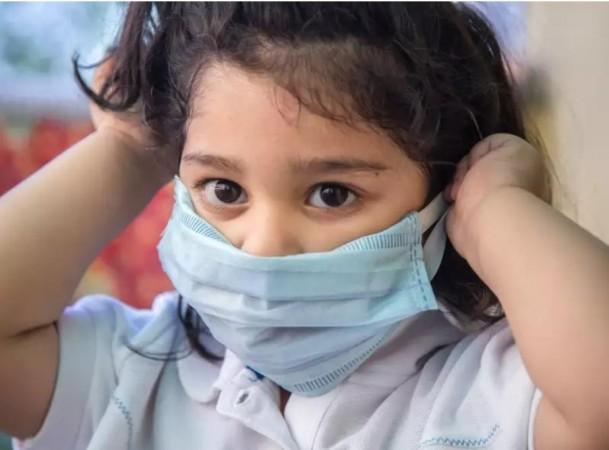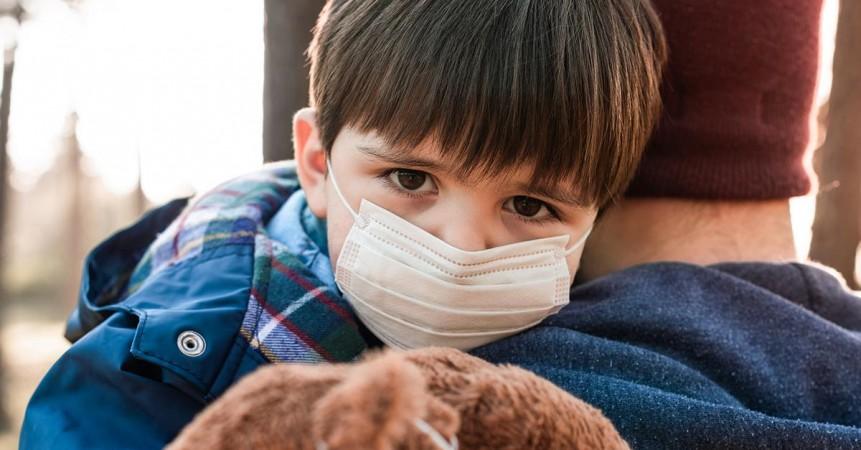On Saturday, May 22, Bengaluru's Aster CMI hospital witnessed an unusual case of a 13-year-old whose heart was functioning only 30 percent. The child was brought to the hospital for complications due to multisystem inflammatory syndrome (MIS-C) symptoms. A syndrome that arises post recovery from covid-19 wherein the body's immune system becomes hyperactive and may go on to cause inflammation in crucial organs such as the heart, lungs, blood vessels, kidneys, digestive system, brain. While MIS-C is rare in adults, its prevalence in children post covid recovery is on the rise.
Dr Srikanta J T who is a pediatric pulmonologist with Aster CMI and has been recommended to be part of Karnataka State's Covid Task Force told International Business Times, "In the last two weeks, we have seen almost two cases every day of children affected due to MIS-C. Children who have recovered from covid-19 with mostly mild symptoms are coming back after an interval of a few weeks to a month with signs of high fever, red eyes, rashes on their body and their heart if getting affected. Even after they test negative, the anti-bodies in the system are very high and such symptoms are to be looked out for. MIS-C is going to be a major catastrophe and the next few weeks are to be watched out."

At Aster, during the peak of COVID-19, pediatricians recall seeing 600-800 children affected with covid-19 over a month. While most of these cases were outpatients requiring much lesser attention, around 10 needed hospitalization, and 2-3 required severe care in terms of incubation or ventilation. Only one causality was reported, of a 15-year-old who developed new-onsets diabetes due to covid-19 and went into a complication called diabetic ketoacidosis and couldn't be revived.
Dr Srikanta explains, "We saw the peak in Bangalore cases around mid-April. From 25000 back then, we have come down to 8000 today, however, exactly after one month of getting down from the peak, we have started seeing children coming back to us with MIS-C complications."
Rainbow Hospital in the city has also noticed a surge in MIS-C complications. Talking about Covid-19 cases witnessed by Rainbow Children's Hospital, Dr Rakshay Shetty, Lead Pediatric Intensivist told International Business Times, "In the last three weeks, we have had 160 admissions. That number might seem large because BBMP sent these cases to us despite being mild and could be treated at home. Out of this, only 15-20 needed special care and about five needed support in terms of mechanical ventilation. A rare case of encephalitis complication was also reported where one child's brain was affected."
Symptoms to look out for
Dr Shetty reports that on average, the hospital sees 2-3 patients with MIS-C complications and common symptoms such as persistent high-grade fever, abdominal pain, loose motions, red eyes, and red tongue. Occasionally, there might be symptoms such as fits or convulsion too.
MIS-C treatable yet there is a problem

MIS-C symptoms when diagnosed early can be easily treated in most cases with IVIG treatment which is the only recommended therapy according to Dr Srikanta. However, Dr Shetty agrees that lack of awareness and delayed action may be a problem.
He says, "In certain cases where a child may be down with covid-19 with very mild or no symptoms, parents do not even come to realize this. But suddenly after a month, when the immune system goes in an overdrive mode and begins to affect other organs, symptoms are visible. This is when they seek medical intervention; in some cases, parents don't want to accept the diagnosis, they go from one pediatrician to another, now if the pediatrician misses it or misdiagnoses it as a typhoid fever or urinary tract infection, the response to the syndrome is further delayed. There is a need for awareness about this in both parents and pediatricians and timely intervention and observation is a must."
He adds that if timely treatment is provided, within 24-48 hours children can recover and sent back home.
Extra caution for children with special needs
While most children affected by Covid-19 recover easily with home isolation, treatment and care; a section of children with existing comorbidities need special care during such times.
"Children with respiratory illnesses such as asthma, lung conditions, bronchitis have to be very careful. Children with genetic conditions, those who are suffering from obesity, children suffering from cancer or undergoing chemotherapy, and those with immunodeficiency fall under this special care category, and parents have to be extra cautious around them," informs Dr Srikanta.
Dr Shetty highlights that there is also a rise in obesity in children which is a cause of concern. "During the lockdown, we have seen this trend where parents are constantly trying to feed their child in the hope of building immunity in them against viruses. Immunity comes with a balanced diet and not constantly eating. Unfortunately, we have seen children who have gained 10-20 kgs of weight during the lockdown period and these kids are going on to develop diabetes at a young age of 12 and it is a risk factor."
How many children affected by covid-19 in Karnataka so far?
According to the State Covid-19 War Room, as reported by Times of India, 39,846 children aged 0-9 years and 1,05,044 aged 10-19 years have tested positive between March 18 to May 18, 2021. The corresponding numbers since the pandemic began in 2020 till March 18 this year were 27,841 and 65,551 respectively.
The Karnataka government is working on formalizing a state task force for covid-19 (pediatric cases) and within a month's time is likely to chalk out a preparedness plan in terms of manpower, infrastructure, medical facilities requirement to tackle cases in the next wave.








